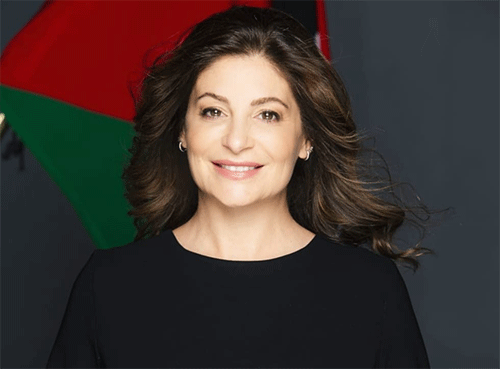Forty-five years ago, the United Nations (UN) General Assembly inaugurated 29 November as the International Day of Solidarity with the Palestinian people.
But what does international solidarity mean to Palestinians?
For us Palestinians, solidarity is a process of struggling together; of battling the structures and unequal systems that keep people oppressed. Mozambican freedom fighter and leader, Samora Machel, explained it best: “International solidarity is not an act of charity: it is an act of unity between allies fighting on different terrains toward the same objectives.”
Solidarity, then, is about developing reciprocal relationships between people. No nation is alone in its quest for justice and dignified life – whether it is Palestinians fighting the occupation, or people in any other nation fighting food and energy insecurity or economic inequality.
It is this concept of solidarity that also guides the work of the Palestinian International Cooperation Agency (PICA) – the main public diplomacy tool of Palestine that was established six years ago. Between 2016 and 2021, PICA worked on implementing development projects in the fields of health, agriculture, education, energy and water in 13 African countries.
Palestinian medical delegations shared expertise and know-how to enhance and strengthen the capacities of medical staff in Botswana, Côte d’Ivoire, Guinea Conakry, Mauritania, Mozambique and Tunisia. Palestinian doctors provided specialised training in the fields of emergency, trauma, burns, visual impairment, orthopaedics, ophthalmology, paediatrics, dental surgery, anaesthesia, obstetrics and gynaecology and diabetes.
In Côte d’Ivoire and Mali, PICA staff engaged in media capacity building, while in Kenya and Mauritania, the mission provided solar energy panels and other renewable energy equipment to communities that lacked these essential facilities.
These projects are an attempt at assisting nations in achieving several UN Sustainable Development Goals (SDGs) including health and well-being, quality education, clean water and sanitation, clean and affordable energy, peace, justice and strong institutions.
PICA’s focus, however, is not limited to Africa but spreads across the entire global south including Latin America, the Caribbean, and Asia.
This is because Palestinians and the people of the global south share a historic and unparalleled bond, rooted in decolonization, anti-racism, equality, justice, and our inalienable right to self-determination. It is no coincidence that the overwhelming majority of the members and observers on the UN Committee on the Exercise of the Inalienable Rights of the Palestinian People (CEIRPP) are from the Global South. CEIRPP promotes the Palestinian peoples’ rights to the right to self-determination, national independence and sovereignty.
Nations in the global south know our pain and appreciate and support the justness of our struggle for freedom from Israeli colonialism and apartheid.
Solidarity, then, is founded on a context of shared struggles. It is a political process based on unity. Palestinians have experienced this solidarity at the UN when countries from Africa and the rest of the global south consistently and unequivocally condemn Israel.
Most recently on 10 November, Palestinians experienced this solidarity when representatives from South Africa, Namibia, Libya, Sudan and Algeria supported Palestine’s request at the UN Fourth Committee (Special Political and Decolonisation) for the General Assembly to request an advisory opinion from the International Court of Justice on the legal consequences of Israel’s occupation of Palestine.
We hope that when the matter comes up for voting at the General Assembly next December, more of our fraternal nations will support this endeavour. This is the first step in reactivating legal instruments to fight Israeli apartheid. This is concrete action towards realising the freedom of the Palestinian people.
As Israel intensifies its occupation of Palestine, it is time to move beyond words of solidarity with Palestine and translate condemnations of Israeli human rights violations into action. Actors – like Israel – who see international law and human rights as impediments and continue to commit war crimes against the Palestinian people must be held accountable and exposed – not rewarded and accommodated for its apartheid policies against Palestinians.
Our people are resilient, and we Palestinians will carry on with our legitimate struggle for our freedom and dignity. But the reality is that we need international mobilisation and support. We must continue with meaningful, reciprocal solidarity based on the shared struggle that goes beyond symbolic words and gestures to attain Palestinian freedom.
*Hanan Jarrar is the Palestinian ambassador to South Africa, Namibia, Lesotho and Malawi.


